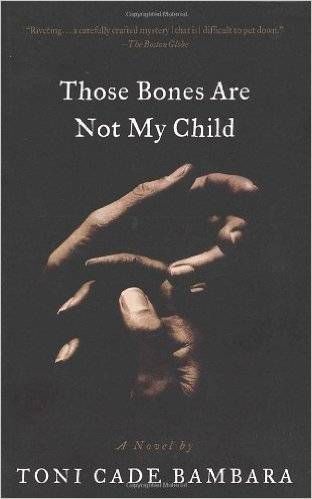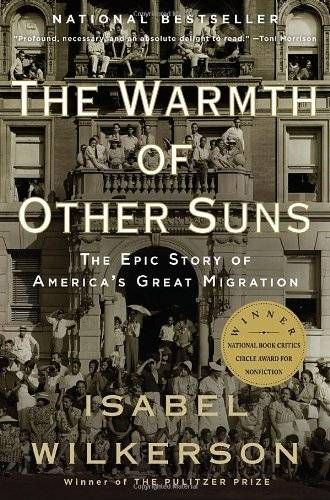
I Only Read (Non)Fiction: On Breaking Out of Your Reading Bubble
Dear Fellow Readers:
What’s with the inclination to limit ourselves to one half of the library?
Let’s recalibrate the way we talk about books. Nonfiction does not put you to sleep. Fiction isn’t a waste of time. You have perhaps read a work of nonfiction that bores you, or multiple that have; you were perhaps lulled to sleep by Moby-Dick or Lord of the Flies in high school, and found nothing in them that spoke to you at a primal level.
But to dismiss entire categorizations based on minute samplings of their stores!: it’s a massive disservice to yourself, and it leads to an anemic reading life.
I don’t mean to speak against having tastes. Settling into your reading personality requires getting used to your own unique rhythms. It’s great to be able to say “I gravitate to romance novels” or “I really love reading the biographies of royals” or “something about young adult dystopias just does it for me.” But loving science fiction does not mean there’s nothing over in the non-fiction section that wouldn’t also thrill you. Feeling illuminated by histories from the war years does not mean that there’s not a novel out there that wouldn’t also light you up.
The pushy librarian in me implores you: try works outside your comfort zone. Take it beyond genre. If you usually browse the fiction section, try the non- instead this time, or vice versa. Tap someone at the reference desk for help dipping in.
Some (perhaps obvious) ways to start:
For the Non-Fiction Onlies:
Try historical fiction. Crazy, right? Maybe Philippia Gregory and her royals, or E.L. Doctorow (Ragtime for the Roaring Twenties, The March for the Civil War, The Book of Daniel for a roman a clef treating Julius and Ethel Rosenberg) have a way in.

Essentially, if you can name a real-time interest, we can find you a novel which deals with it. Sure, you may not be able to use everything you gather from historical stories to ace a history test, but novels will help you to understand what roils beneath historical events: the emotions. The questions. Ripple effects. All worth engaging.
And if you happen to find a bridge book that you love, you can use Goodreads or NoveList to find read-alike titles. Some may be wholly fictitious; yet they may, too, end up as enriching experiences.
For the Fiction Alones:
This is more my camp, so my apologies if I treat this problem as harder to solve. I guess I would begin with: what’s the hold-up? Have we been rendered truth-lethargic by the memory of dry textbooks from school days, when reading-to-learn implied trudging through clinical writing? Or do we go to fiction believing that it’s pure escapism, and think we don’t have the desire to meditate too long on activities on the ground?
First, assuage yourself of the notion that all factual reading is dull. This is not truth vs. imagination, where Truth buttons all of its buttons and corrects your grammar, while imagination shows up late with its vintage blouse askew and appealing to a broken watch. Sometimes fiction dons an ascot. Sometimes non-fiction goes a little steampunk. Fiction/non-fiction is less an actual duality than it is a convenient way to box our conversations about the world we live in.
But it’s all a creative effort, this book-writing gig. From matter-of-fact works on ghost hunting to those gorgeous books on specific varieties of flowers to beautifully-bound volumes exploring the edges of our universe: writers make choices that the scientific process does not require them to make. By virtue of determining where one should start, a non-fiction work has rendered itself interpretive. The very framework of a book limits how much we’re able to talk about, how scientifically we are able to do it, and what room we have to flesh notions out.
I don’t want this to be a treatise, so if that was a TL;DR situation, just: I swear to you, there’s a lot that’s rich, both in narration and exposition, in non-fiction.

Ari Shavit’s My Promised Land tells Israel’s complicated story with lots of narrative twists; Alan Weisman’s The World Without Us melds ecology with dystopian projections. Genre readers: I can get you someplace real that you’ll love.
___
As much as you may be convinced that nonfiction holds no books that can move you, or that fiction is concerned with doing only that: there are innumerable volumes that run counter to such narrow characterizations. Emote your way through a history. Think your way through a short story collection. These aren’t outlandish suggestions; in any library, there are many opportunities to read dynamically, no matter what shelves your standing between.
No one can guarantee that you’ll enjoy every book you pick up, of course. What is certain is that, if you say “no,” categorically, to half of what you might read, you’re left with a much smaller pool of possibilities: to learn, to grow, to escape, to challenge yourself.
As readers, we thrive on going into the unknown. We’re constantly seeking to increase our understanding. Don’t, then, let anything be off-limits. You owe yourself the truth; you owe yourself some fantasy, too. You can find either, and sometimes both, across the fiction/non-fiction divide.
Happy reading!











